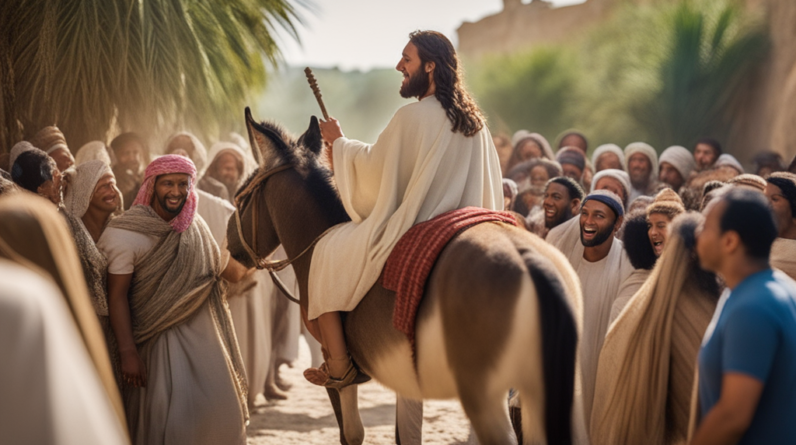In this captivating article, you’ll uncover the profound impact of worship songs directly derived from scripture. Join us on a journey as we explore the melodies of devotion found in Psalm 119:11, Psalm 100:1, and Psalm 111:1. These transformative melodies have the power to inspire and deepen our connection with the divine, providing a unique way to engage with the teachings and wisdom of the Bible. Prepare to be moved as we delve into the significance of these worship songs and their ability to stir the soul.

The Power of Worship Songs
Expressing Emotion
Worship songs have a unique ability to evoke and express deep emotions. Through the power of music and lyrics, worship songs have the ability to touch the depths of our hearts and allow us to express our feelings to God. Whether we are feeling joy, sadness, gratitude, or awe, worship songs provide an outlet for us to pour out our emotions in a way that words alone cannot capture. The melodies and harmonies, accompanied by heartfelt lyrics, create an atmosphere of intimacy with God, allowing us to connect with Him on a deeper level.
Connecting with God
One of the most profound aspects of worship songs is their ability to connect us with God. They serve as a bridge between the earthly and the divine, enabling us to enter into the presence of God and experience His love and grace in a tangible way. As we sing and worship, our focus shifts from ourselves and our circumstances to the greatness and goodness of God. Worship songs offer an invitation to draw near to Him and surrender our hearts and minds, allowing us to experience His presence and be transformed by His love.
Passing Down Tradition
Worship songs play a crucial role in passing down traditions and beliefs from one generation to another. Throughout history, songs have been used to convey important messages and teachings. In the context of worship, songs serve as a vessel for passing down the rich traditions and stories of our faith. By singing songs that have been sung for generations, we are connecting ourselves to a much larger narrative and becoming part of a timeless tradition. This continuity not only strengthens our own faith but also fosters a sense of community and belonging as we join with others in worship.
Psalm 119:11: Hiding God’s Word in our Hearts
The Importance of Memorizing Scripture
Memorizing Scripture is often emphasized in religious practices, and for good reason. Psalm 119:11 highlights the importance of hiding God’s Word in our hearts. Memorizing Scripture allows us to carry God’s truth with us wherever we go. It becomes a spiritual weapon against temptation, a source of guidance in making decisions, and a comfort in times of distress. By internalizing God’s Word, we are better equipped to live out our faith and walk in obedience to Him.
The Role of Worship Songs in Memorization
Worship songs serve as a powerful tool for memorizing Scripture. The combination of music and lyrics makes it easier for our minds to retain information. The repetitive nature of singing allows the words to become ingrained in our hearts and minds. When we sing Scripture-based worship songs, we not only engage in musical worship but also engage in the process of memorization. By incorporating God’s Word into our worship, we are creating pathways for His truth to dwell within us.
Impact on Personal Devotion
Memorizing Scripture through worship songs has a profound impact on our personal devotion. When we commit God’s Word to memory, we are able to recall it in times of need. In moments of uncertainty or struggle, the lyrics of a worship song can bring comfort and assurance, reminding us of God’s faithfulness and promises. Additionally, memorizing Scripture allows us to meditate on its meaning and apply it to our daily lives. It provides a foundation for our personal relationship with God and strengthens our faith.

Psalm 100:1: Shouting for Joy in Worship
Understanding the Context of Psalm 100
Psalm 100 is a psalm of praise and thanksgiving. It calls us to enter into God’s presence with joyful worship, acknowledging His sovereignty and goodness. The psalmist encourages us to make a joyful noise, serving as a reminder that worship is not meant to be a passive or reserved experience. Instead, it is an opportunity for us to wholeheartedly express our gratitude and adoration towards God.
Praising and Worshiping God with Melodies
Worship songs provide a platform for us to praise and worship God with melodies. They enable us to express our gratitude and awe through music, allowing our spirits to soar and our voices to be heard. Music has a way of bypassing our intellect and reaching straight to our hearts. When we lift our voices and sing songs of praise, we are participating in an act of worship that goes beyond words alone. It is a way for us to engage our whole selves in praising God.
Embracing Joy in Worship Songs
Joy is a central theme in worship songs, and Psalm 100 reminds us of its importance. Worship songs have the ability to stir up joy within us as we celebrate the goodness of God and His faithfulness towards us. In times of sorrow or hardship, worship songs can uplift our spirits and remind us of the joy that comes from knowing and worshipping God. By embracing joy in worship, we are able to experience a deeper sense of connection with God and find strength and encouragement in His presence.
Psalm 111:1: Great Is the Lord
Exploring the Attributes of God
Psalm 111:1 invites us to explore the greatness of the Lord and His wondrous works. Worship songs provide a means for us to delve into the attributes of God and reflect on His character. Through the lyrics of these songs, we are reminded of His love, power, faithfulness, and holiness. Worship songs enable us to contemplate the depth and beauty of who God is, leading us to a place of reverence and awe.
Expressing Adoration and Reverence through Song
Worship songs offer us a platform to express our adoration and reverence for God. By singing songs that exalt and magnify His name, we are acknowledging His greatness and worthiness of praise. In the act of worship, we surrender our own agendas and focus our attention on God alone. Worship songs help us to articulate our reverence for Him, allowing us to express our love, gratitude, and awe in a meaningful and heartfelt way.
Melodies that Exalt the Lord
The melodies of worship songs contribute to the exaltation of the Lord. As we sing these melodies, our voices join together to create a symphony of praise. The combination of lyrics and music elevates our worship, enabling us to connect with God on a deeper level. The melodies carry the weight of our praise and adoration, lifting our spirits and drawing us into a place of intimate communion with the Lord. Worship songs provide a space for us to exalt God and offer our heartfelt worship to Him.

Theoretical Framework Behind Worship Songs
The Relationship between Music and Spirituality
The connection between music and spirituality has been recognized throughout history. Music has the power to touch our souls, transcend language barriers, and facilitate spiritual experiences. It has the ability to evoke emotions, create a sense of unity, and open our hearts to the presence of the divine. In the context of worship songs, music becomes a conduit for our spiritual expression, enabling us to connect with God and engage in worship.
The Role of Lyricism in Worship
Lyricism plays a significant role in worship songs. The choice of words and imagery in the lyrics helps to convey meaning and evoke emotions. The lyrics shape our theological understanding, provide opportunities for self-reflection, and guide our prayers and praises. Well-crafted lyrics have the power to inspire, challenge, and encourage believers in their faith journey. Whether through poetic language or simple and straightforward expressions, the lyrics of worship songs contribute to the overall spiritual experience.
Theological Considerations in Songwriting
Songwriting for worship involves deep theological considerations. Worship songs serve as a theological tool, helping to shape our understanding of God and our relationship with Him. Songwriters carefully select biblical truths and scriptural imagery to communicate theological concepts in a concise and accessible manner. The process of songwriting requires a careful balance of artistic creativity and theological accuracy, ensuring that the lyrics accurately represent the nature and character of God and align with the foundations of the faith.
Worship Songs and Community
Creating Unity and Togetherness
Worship songs have the power to bring people together and create a sense of unity within a community. When believers gather to sing together, they participate in a communal act of worship that transcends individual experiences. The shared melodies, harmonies, and lyrics provide a common ground for believers from diverse backgrounds and experiences to join together in worship. Worship songs bridge the gaps between different generations, cultures, and languages, fostering a sense of togetherness and unity within the body of Christ.
Encouraging Participation and Engagement
Worship songs encourage active participation and engagement within a community. As believers join their voices together in worship, they become active participants in the worship experience rather than passive observers. The act of singing invites believers to fully engage their hearts, minds, and bodies in expressing their devotion and love for God. Worship songs create an atmosphere of inclusivity, allowing everyone, regardless of their musical abilities, to contribute and participate in the worship of God.
Connecting Believers Across Generations
Worship songs serve as a link between different generations of believers, connecting them through shared experiences and shared faith. By singing songs that have been passed down through the generations, younger believers are able to connect with the wisdom and experiences of those who have gone before them. Similarly, older believers can find joy and inspiration in witnessing the passion and enthusiasm of younger generations as they worship. Worship songs provide a common language that transcends age, creating a sense of continuity and unity within the body of Christ.

The Evolution of Worship Songs
Historical Development of Worship Music
Worship music has a rich history that dates back centuries. From the early chants of the early Christian church to the hymns of the Protestant Reformation, worship music has evolved and adapted to the cultural and theological contexts of different eras. Through each period of history, worship music has reflected the beliefs, practices, and aspirations of the worshiping community. The evolution of worship songs is a testament to the creativity and adaptability of believers in expressing their devotion to God through music.
Influence of Cultural and Musical Trends
Cultural and musical trends have had a significant impact on the development of worship songs. As worship music has evolved, it has incorporated elements of different musical styles, genres, and rhythms that reflect the cultural contexts in which they were composed. Whether it be the influence of gospel music in contemporary Christian worship or the incorporation of indigenous instruments in worship songs from different regions, cultural and musical trends have shaped the sound and expression of worship songs throughout history.
Modern Approaches to Worship Songwriting
In recent years, there has been a surge of innovation and experimentation in worship songwriting. Contemporary worship songs are characterized by their accessibility, simplicity, and relatability. Songwriters today are exploring diverse musical styles and genres, blending contemporary sounds with traditional elements. They are embracing a broader range of lyrical themes and expressions while staying rooted in biblical truth. Modern approaches to worship songwriting seek to engage a new generation of believers and create songs that resonate with their unique experiences and expressions of worship.
Finding Inspiration for Worship Songs
Drawing from Personal Testimonies and Experiences
Personal testimonies and experiences are a wellspring of inspiration for worship songs. As believers navigate the ups and downs of life, they encounter moments of profound spiritual significance and divine intervention. These experiences can serve as the foundation for powerful and relatable worship songs. Drawing from personal testimonies allows songwriters to tap into the deep well of emotions and stories that connect us as believers. It provides a platform for vulnerability and authenticity in worship, allowing others to connect with our experiences and find encouragement in their own journey of faith.
Scriptural Inspiration for Songwriting
Scripture is an abundant source of inspiration for worship songs. The Bible is filled with narratives, poetry, and teachings that convey the depth of God’s love, faithfulness, and redemption. Songwriters often turn to scripture for ideas, themes, and even direct quotes to weave into their lyrics. Drawing from the rich tapestry of scripture serves to root worship songs in biblical truth and gives them a timeless quality. Scriptural inspiration allows worship songs to connect believers to the historical and theological foundations of the faith, providing a framework for their worship and praise.
Exploring Nature and Creation
Nature and creation offer a wealth of inspiration for worship songs. The beauty and intricacy of the natural world point to the creativity and majesty of its Creator. By observing and reflecting on nature, songwriters can capture glimpses of God’s character and attributes. From the vastness of the starry night sky to the delicate petals of a flower, every aspect of creation can serve as a metaphor for our relationship with God. Drawing inspiration from nature allows worship songs to connect believers to the awe and wonder of the world around them and to praise God for His marvelous works.

Impact of Worship Songs on Spirituality
Strengthening Personal Relationship with God
Worship songs play a significant role in strengthening our personal relationship with God. When we engage in worship, whether through singing, listening, or participating in a corporate setting, our hearts and minds are directed towards God. Worship songs help us to focus on His character, His love, and His guidance. They create a space for us to come before Him with authenticity and vulnerability. Through worship songs, we are reminded of our identity as children of God, and our spirits are renewed and refreshed as we encounter His presence.
Providing Comfort and Hope
In times of pain, sorrow, or uncertainty, worship songs provide comfort and hope. The lyrics and melodies of these songs can bring solace to weary souls and bring healing to broken hearts. They remind us of God’s faithfulness and the promises He has made to His people. Worship songs have a way of lifting our spirits and shifting our perspective from our circumstances to the hope we have in Christ. By expressing our struggles and doubts in the context of worship, we find strength and encouragement to continue pressing on in our faith journey.
Fostering Spiritual Growth
Worship songs play a vital role in fostering spiritual growth. As we engage in worship, our hearts and minds are opened to receive God’s truth and guidance. Worship songs help us to internalize biblical teachings, shaping our worldview and transforming our thoughts and attitudes. Through the repetition of lyrics and melodies, truths are instilled within us, increasingly shaping our character and actions. Worship songs challenge us to grow deeper in our faith, to surrender more fully to God, and to live out our beliefs in practical ways.
Incorporating Worship Songs in Personal Devotion
Tips for Selecting Meaningful Worship Songs
When incorporating worship songs in personal devotion, it is helpful to choose songs that resonate with your own journey and reflect your current spiritual state. Consider the lyrics, melodies, and themes of the songs and how they align with your own beliefs and experiences. Select songs that draw you closer to God, deepen your understanding of His character, and inspire you to live faithfully. Be mindful of the emotions evoked by the songs and how they contribute to your worship experience.
Creating a Playlist for Different Moods and Seasons
Creating a playlist of worship songs for different moods and seasons can enhance your personal devotion. Consider the varied emotions and experiences you go through in your spiritual journey. Some days, you may need songs that bring comfort and peace, while other days, you may desire songs of celebration and joy. Curate a collection of songs that speak to your heart and meet you where you are. This diverse playlist will provide you with a range of worship experiences and cater to your changing needs.
Utilizing Worship Songs in Prayer and Meditation
Worship songs can be incorporated into your prayer and meditation practices to deepen your connection with God. Choose songs that align with the themes you are focusing on in your prayer or meditation. Singing or listening to worship songs can help set the tone for your time of communion with God, creating an atmosphere of reverence and openness. Allow the lyrics and melodies to guide your thoughts and emotions as you draw near to God and seek His presence. Let the worship songs become a language of prayer and a pathway to deeper intimacy with Him.
In conclusion, worship songs hold a transformative power that goes beyond mere music and lyrics. They have the ability to express emotions, connect us with God, and pass down traditions. Worship songs aid in the memorization of Scripture, deepen our personal devotion, and facilitate the expression of joy and reverence in worship. They play a pivotal role in exploring the attributes of God, fostering a theoretical framework for worship, and cultivating unity within a community. From their historical development to their modern approaches, worship songs continue to evolve while drawing inspiration from personal testimonies, scripture, and nature. Their impact on spirituality is profound, strengthening our relationship with God, providing comfort and hope, and fostering spiritual growth. By incorporating worship songs into our personal devotion, we can select meaningful songs, create playlists for different moods and seasons, and utilize them in our prayer and meditation practices. The power of worship songs is undeniable, and as we engage with them in our own lives, we can truly experience the melodies of devotion that echo throughout scripture.







